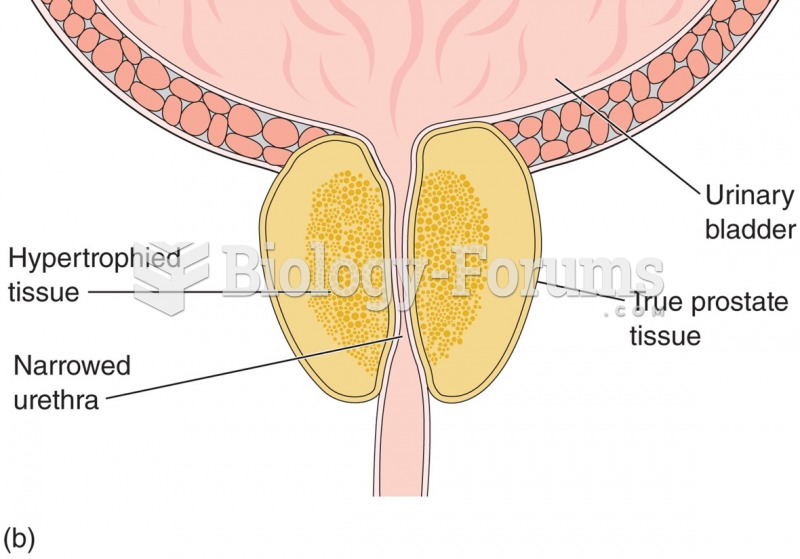Answer to Question 1
4
Rationale 1:Benign tumors grow slowly, do not metastasize, and rarely require drug treatment.
Rationale 2:Malignant tumors grow rapidly, become resistant to treatment, and normally result in death.
Rationale 3:Benign tumors do not cause death but their growth may cause pressure on nerves and may need to be surgically removed.
Rationale 4:Malignant tumors are called cancer and become resistant to treatment and normally result in death.
Global Rationale: Benign tumors grow slowly, do not metastasize, and rarely require drug treatment. Although they do not cause death, their growth may cause pressure on nerves, blood vessels, or other tissues. When this occurs, they may be surgically removed; they do not normally grow back. Malignant tumors are called cancer. The word malignant refers to a disease that grows rapidly worse, becomes resistant to treatment, and normally results in death.
Answer to Question 2
2
Rationale 1: Antitumor antibiotics are very different and more toxic than the antibiotics used for infectious diseases.
Rationale 2: Antitumor antibiotics are drugs obtained from bacteria that have the ability to kill cancer cells and are effective against certain tumors.
Rationale 3: Antitumor antibiotics interact with DNA in a manner similar to the alkylating drugs.
Rationale 4: A major dose-limiting adverse effect of the antitumor antibiotics is bone marrow suppression.
Global Rationale: Antitumor antibiotics are drugs obtained from bacteria that have the ability to kill cancer cells and they are very effective against certain tumors. These chemicals are more toxic that the traditional antibiotics and their use is restricted to treating specific cancers. All the antitumor antibiotics interact with DNA in a manner similar to the alkylating drugs.







